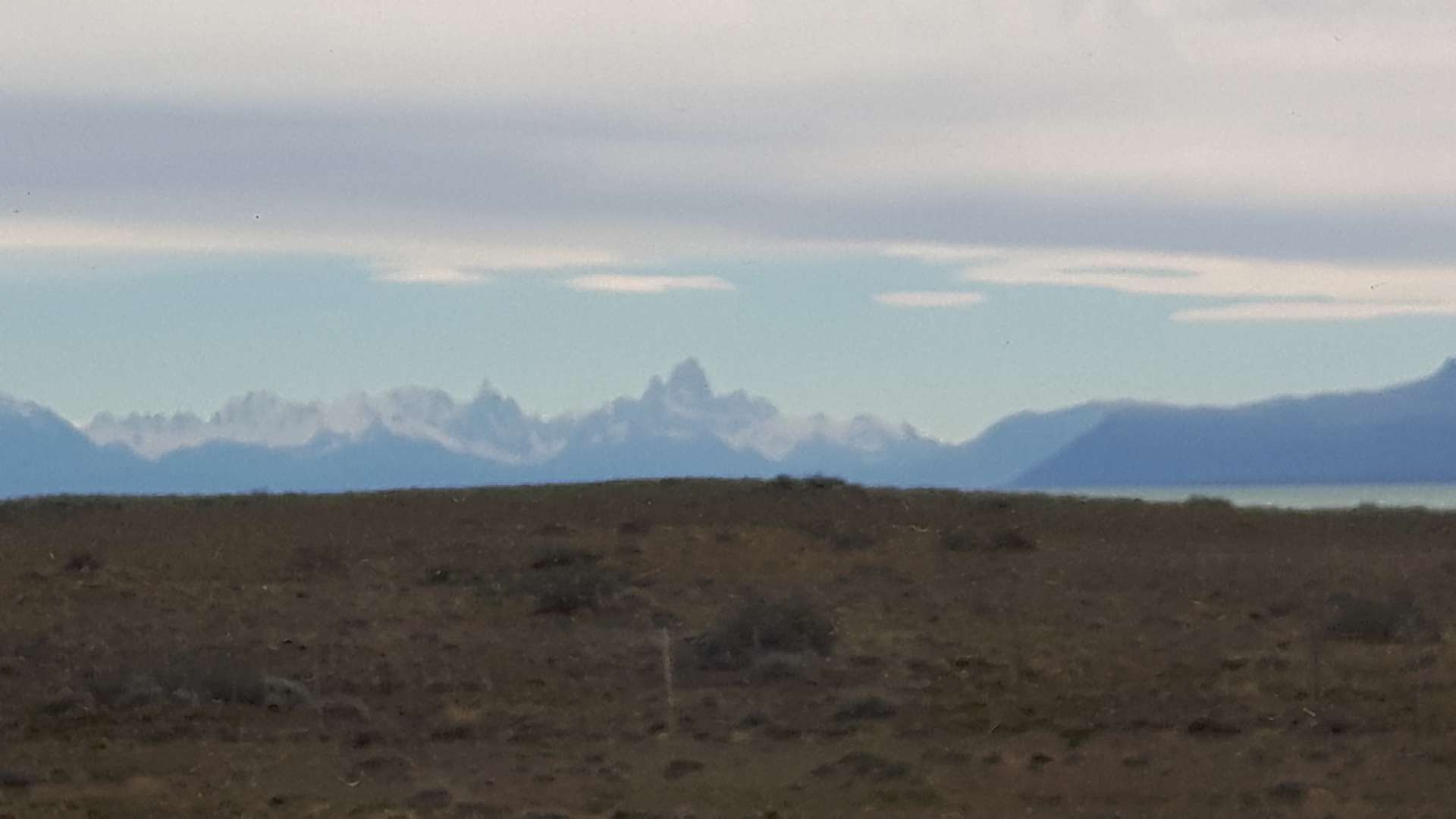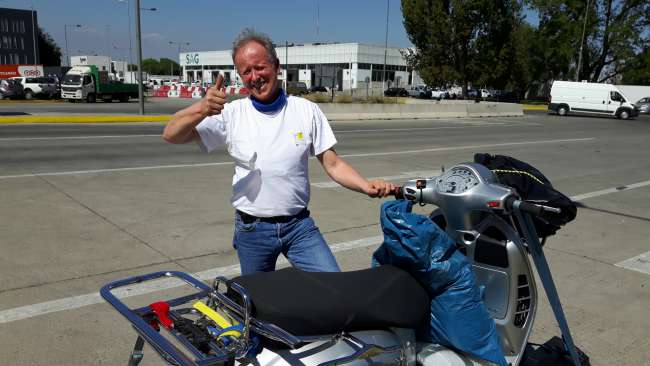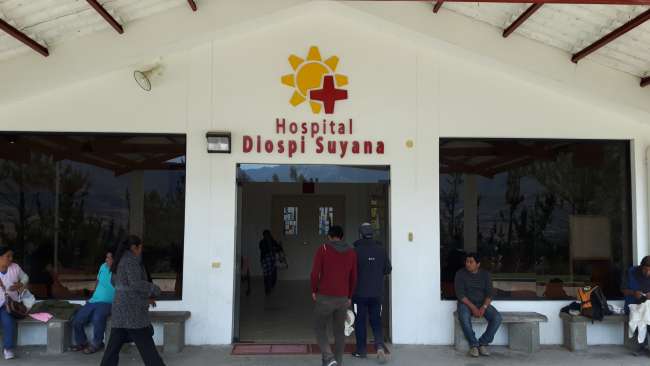Nora
wahnsinn!! echt, dieser "drive" so ein krankenhaus zu gründen, unabhängig ob missionsarbeit dazu gehört oder nicht. Auf der reise erfährt man ständig von sachen, die andere menschen machen, die man nicht für möglich gehalten hätte bzw an die man so gar nicht denkt. wie auch dieses schiff von dem betrunkenen kapitän nach australien..Curahuasi: My visit to the German missionary clinic
Published: 09.08.2017
Subscribe to Newsletter
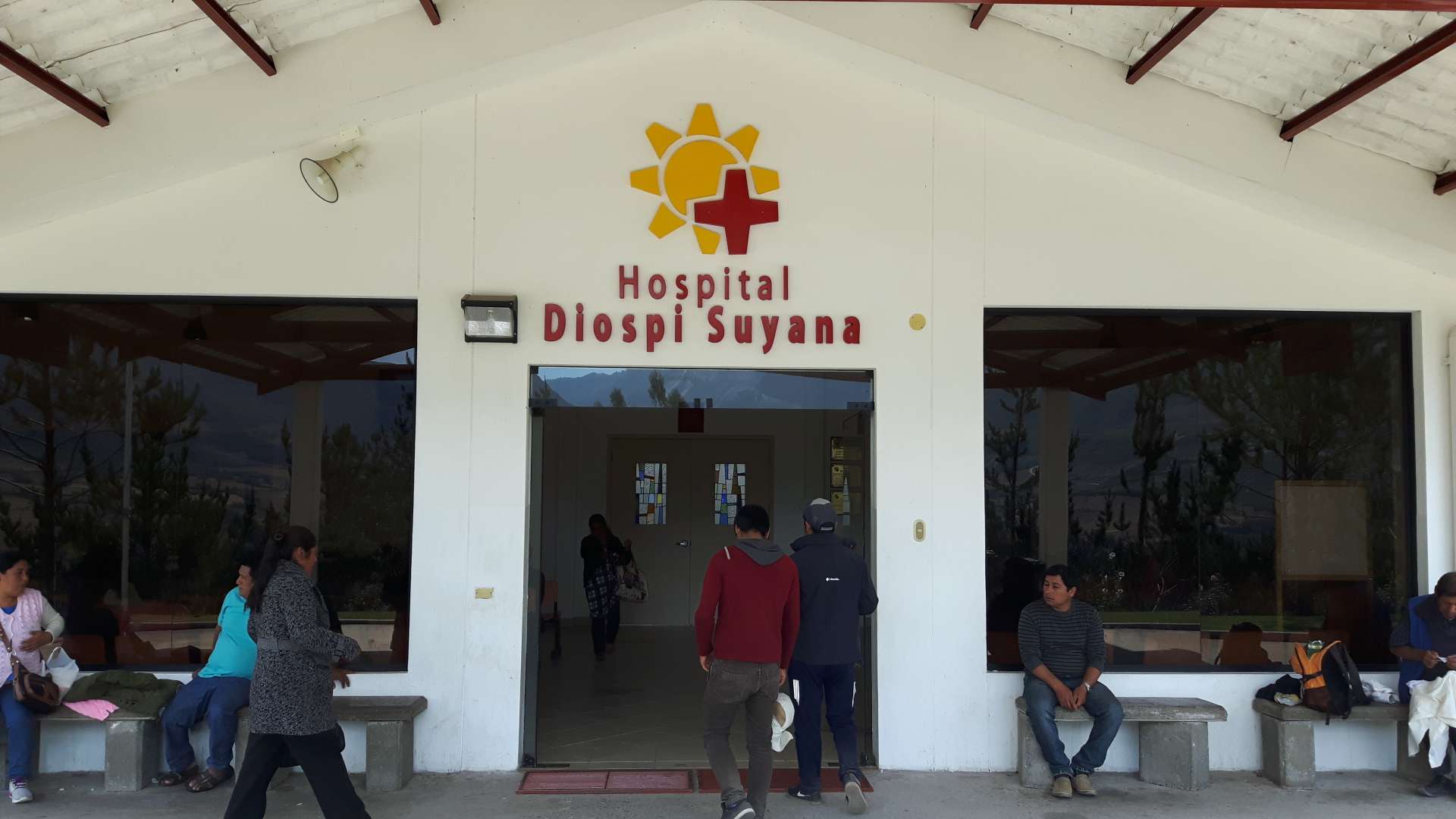
Diospy Suyana - Hospital of Faith
Maybe it's because of my visit to the Protestant missionary clinic in Curahuasi, which I made a few days ago on my trip to Abancay, that the living conditions of the rural population now stand out more clearly for me on my travels through the country.
What is hidden behind these windowless adobe walls is hidden from the view of the spoiled tourist. Only the locals know about their quality of life and treat it as something completely normal. Symptoms of illness are ignored and accepted with death - only in a few cases is medical care sought, are hospitals visited, partly because the way is too far and too arduous, partly because there are far too few doctors who can help with outpatient treatment.
Thirdly, because the necessary money is missing.
This clinic in Curahuasi was established by a German doctor couple from Wiesbaden. Motivated by the vision of providing a place for the poorest of the poor in one of Peru's poorest regions to receive medical treatment for little or no money.
This vision has become a reality, preceded by bone-hard work.
Because the doctor couple did not inherit a large fortune or speculate successfully - no, this $20.5 million project was realized solely and exclusively with the help of donations, material aid and free expertise. 50 thousand private individuals and 180 companies were acquired throughout Europe and the USA.
Today, this vision presents itself as a fully-fledged hospital, which will celebrate its twelfth anniversary in October. It now employs 180 Peruvians and is one of the largest employers in the region. 125 thousand patients have been treated, and the waiting room is filled to capacity every morning.
In addition to the clinic itself, there is an eye and dental clinic. The dental clinic is led by a German dentist in his mid-thirties. He came to Curahuasi with his wife and children. His wife is also a doctor who travels to remote mountain villages once a week and provides educational work. The children go to school here - how long they want to stay is not yet decided. There is also a master dental technician from Germany, whom we encounter on his way to the cafeteria and who, like the dentist, seems to be very satisfied. There are donation organizations in Germany that enable voluntary work in the clinic. Almost all medical disciplines are represented here. The doctors are committed to their vocation and their faith and stay here as long as their life plan allows.
The patient base consists almost exclusively of Quechua Indians, most of whom only speak Quechua. 85% of them are treated free of charge. There is also a social worker in the house who talks to the patients and then decides whether the services can be provided free of charge.
The name of the hospital is derived from the Quechua language and is called "Diospy Suyana - Hospital of Faith". The focus is on "proclaiming the gospel of Jesus Christ in cooperation with the local churches," as described on the website http://www.diospi-suyana.de/. Each working day begins with a morning devotion. There is also a broadcasting studio that has just been set up and is in the process of acquiring frequencies that will allow broadcasting outside the hospital. The focus is also on conveying Christian values, which is part of the missionary work. The school, which is set up to admit 600 students and will later be expanded to include an advanced section, the children's clubs, where children from the district can escape the narrowness and violence of their parental homes for a part of the day and learn Christian values, are further pillars that provide the local population with a better future and want to give them a new faith.
Arne, who volunteered here for a year and will begin his medical studies in the winter semester, guides me through the clinic, which is equipped with the latest developments in medical technology.
Digestive diseases, which are caused by a lack of health education, dominate, he says.
From the lectures, which can also be heard on the clinic's website, it becomes clear that faith played a very important role in the realization of this project - it even moved mountains.
I am a critic of missionary work that aims to bring the belief of the "civilized population" closer to the people. I am also opposed to the idea that receiving benefits of any kind should go hand in hand with the dissemination of the Christian faith.
On the other hand, it is all the more necessary for children coming from a destabilized family environment to need orientation and support, which they find in the school and the children's home.
But what about the values they have learned at home?
What role do the local churches play?
It is difficult for me to imagine that the legitimate successors of the Incas - as the origin of the Quechua Indians is described on the website - should abandon their ancestral traditions and open themselves to Christianity - "only" because they belong to the poorest population group in Peru?
The initiator's desire is understandable that his patients - just like himself - will eventually feel the closeness of their Creator as he and his wife did during the realization of their vision.
I don't find an answer to the questions here, but the spirit that prevails in this clinic is different. And that should be the main focus.
A nice episode that hotelier Kalle from Ollantaytambo told me: it is true that almost 92% of Peruvians are of the Catholic faith, but you also have to know that during the time of evangelization, the Inca gods were placed in the holy figures.
Whether that is really true?
Subscribe to Newsletter
Answer (1)
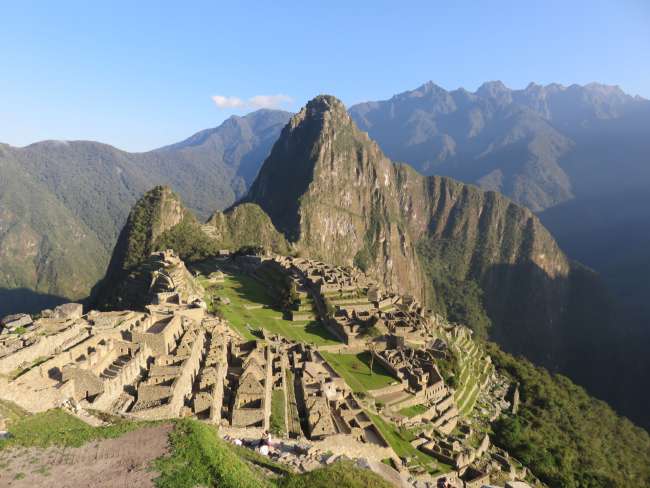
Travel reports Peru
